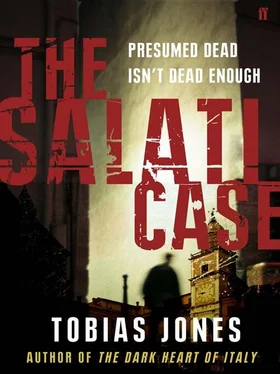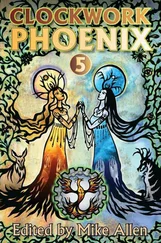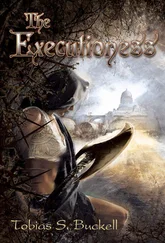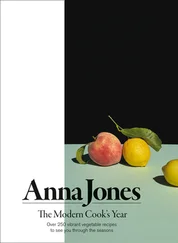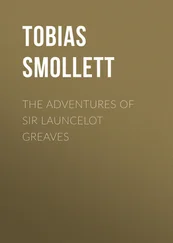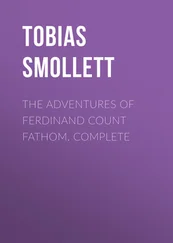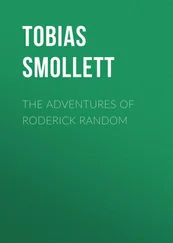I walked slowly towards the Circolo. I called Mauro and told him to meet me there. I wanted to do what the rest of the city would be doing: watch the story on TV.
Mauro was there before me, already nursing a glass of malvasia. The TV was on full volume. There were live feeds from Salati’s house. Only hours after his death there were camera crews outside his palazzo, some conducting interviews with his neighbours via the intercom, others filming the roof terrace from below. Funny how police always let in their favourite journalists.
‘What happened to you?’ Mauro asked cheerfully. ‘Looks like old Salati landed on you.’
On the TV, twenty police cadets were shown combing the gardens and shrubs below. Tall trees were being searched, prodded and pulled by policeman standing in the rectangular fist at the end of a crane’s yellow arm.
Then there was an interview with the slippery mayor. He chose his words very carefully, as if he were trying to save himself from something: ‘He was a dedicated man who represented the best of this city – enterprise, imagination, generosity. We are all in mourning. Our thoughts’, the mayor was now looking into the camera, ‘are with his family.’
As usual the institutional expressions of regret disguised any discord. I knew the official civility by now. It meant no one had a bad word to say against anyone who was dead. Death always made everyone wonderful.
‘Are you personally convinced’, the bald journalist asked the mayor, ‘that Umberto Salati voluntarily took his own life?’ It didn’t look right and the little journalist obviously knew it. No one dared to ask such a question on live TV to such a powerful politician unless the piazza was with you.
The mayor drew breath slowly and nodded. ‘From early indications it seems so. Although it does appear that Umberto Salati died by his own hand, I hope we remember him for the way he lived his life, not for the way in which he ended it.’ Mauro threw a shiny napkin at the set. ‘Balle’, he said. ‘You know that “suicidarsi” isn’t just a reflexive verb? Sometimes there’s a subject and an object involved. It’s something that someone does to someone else.’
‘Yeah, I know,’ I said. I had heard it all before: people were always being ‘suicided’.
‘You’ve got a crazy situation’, said Mauro, ‘where you might suspect Umberto of murdering Riccardo back in 1995, but at the same time you now suspect Riccardo of murdering Umberto over fourteen years later. And until you find Riccardo, walking or rotting, you won’t know which one it is.’
‘Maybe neither,’ I said with resigned frustration. It was like trying to thread a needle with cooked spaghetti.
It was surely too much to think that Salati’s death was Ricky’s doing. Things like that just didn’t happen. People didn’t turn up out of the blue to commit a fatal push and disappear again. The only connection I could find between the brothers was some meaningless word like ‘cursed’ or ‘jinxed’. Silvia Salati’s sons were gone. And for the time being not even death connected them, at least not until I found Ricky’s skeleton somewhere.
Even if Riccardo was alive, why would he bump off his brother? If it was greed, he surely would have done something before their mother died. That way her estate would all be his. As it was, Umberto’s share of the estate would now pass to his ex-wife or their children. There didn’t seem to be a motive.
Maybe it really was suicide. Maybe Umberto was distraught at the death of his mother, distraught at the fact that he might never have truly known who she was. He might have been filled with remorse for what had happened, or what he had done, to his brother. Maybe he thought I was closing in on him and had preferred to face death than face the music. There were certainly enough motives for suicide.
But it just didn’t add up. Umberto didn’t seem like a broken man. He seemed like the sort to get angry, to get even, rather than let life run him over.
Mauro switched to the other local channel. An anchorman announced an interview with Salati’s grieving ex-wife from Traversetolo, Roberta. She was filmed stepping on to her doorstep to say she was saddened to hear of the death of her former husband, and that for the sake of their children the family would ask to be allowed to mourn in private.
‘Auguri,’ I said sarcastically.
I knew that the television would pollute everything about this case. It would be the source of all information. We always complain about the lack of justice in Italy, about the fact that most iconic crimes in the country’s history go unpunished. But that’s largely because everyone expects clarity to come from the television. Its studio experts speculate on these misteri , they combine excited guesses with stoked indignation. Every new scoop pretends to offer clarity, but actually spreads confusion to keep the story going. That way the spectacle will never finish and it can be rewritten through bar-room gossip. And then the grande pubblico will be able to show, through paranoia and fantasy, that you really can’t believe in anything. In the end, everyone will have their own, breathtaking explanation for what happened in this or that tragedy.
I watched for another hour, hearing the same bulletins repeated every few minutes.
I wondered how much the carabinieri knew about Riccardo Salati, Umberto’s missing brother. Dall’Aglio would be contacting me, that was for sure. I would almost be their first lead. That was something I didn’t need: being leaned on by resentful uniforms who had nothing else to go on. The only advantage was that the information would have to go two ways. I would spill the little I knew about what had happened in 1995, and Dall’Aglio would let slip some forensic detail or anomalous alibi they had turned up.
I slugged the dregs of my wine and said goodbye to Mauro.
‘Where are you going?’ he asked, hurt.
I didn’t say anything. I just slapped his shoulders and left the hardened drinkers of the Circolo to their favourite poisons.
I wandered aimlessly and listened to people’s conversations. There’s a saying that the city is so quiet that people whisper. That’s what it seemed like this morning. There were small groups gathered together in the corner of bars, leaning close together so that no one else could hear. I could guess what they were saying. I had heard all the old men at the Circolo. I had heard people in the bus-stops. They were all asking about the Salati suicide and saying it sounded wrong. It was a mess which had been served up too neatly.
There was too much I didn’t know. And even when I knew the facts, there might only be one pointer hidden amongst them all. Like the time Umberto Salati had returned home. Where had he been? Who he had spoken to? Who was in the block of flats? What had they heard?
My phone was ringing. I slid it open and before I even got it to my ear I heard a man’s voice: ‘Castagnetti?’
‘Yes.’
‘It’s Mazzuli from La Gazzetta . We met the other day. We’re running a story tomorrow about Umberto Salati’s death.’
He hadn’t said suicide and I felt on edge.
The journalist kept talking. ‘Is it true you were investigating the disappearance of Riccardo, Umberto Salati’s younger brother?’
I paused. I could hear the hack tapping his keyboard impatiently.
‘What are you writing?’
‘Just taking notes.’
‘I haven’t even said anything yet.’ I couldn’t be sure what he already knew. La Gazzetta was the official mouthpiece of the city’s wealthy industrialists, and it didn’t go out on a limb for a story like this without being very sure of its facts. If this man was being given space to write about the Salati death they must have had some information.
Читать дальше
